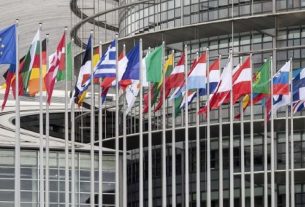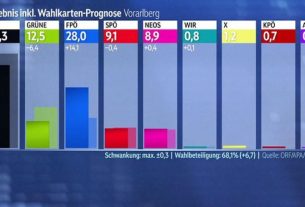The daily newspaper “Die Presse” reported a survey result during the EU election in Austria and the findings of this survey are as follows:
As with every election, voters were asked about their motives before the election to the tenth EU Parliament. The results are collected here and will be continuously updated throughout the election evening. It’s worth coming back!
These answers are taken from a survey conducted by the opinion research institutes Foresight and ISA (Institut für Strategieanalysen) on behalf of ORF. In online and telephone interviews between June 3 and 8, 1239 people were surveyed who are representative of the Austrian electorate.
Top candidates hardly relevant this time
Good news: by far the most important reason for exercising their right to vote is not the toothpaste smile on the election posters, but the substantive position of the campaigning parties. This motive is most pronounced among Green voters, 57% of whom decide according to the election program.
The top candidates appear to be of little relevance. The list leaders influenced only two to six percent of respondents in their choice. Tradition (“Have always voted for this party”) and resignation (“No other party is electable”) are also relevant.
The defeat of the top candidates is illustrated in the following chart. Compared to 2019, this time the number of people who went to the polls because of the perceived crowd pullers was consistently lower.
This is particularly striking for the FPÖ, which fielded the same candidate, Harald Vilimsky, in 2019 and 2024. Five years ago, 17% of FPÖ voters said they chose the party because of Vilimsky; this time it was only 3%.
Speaking of FPÖ voters, they are by far the only ones who would like to see Austria leave the EU: 47% would “very much” or “fairly” approve of an Öxit, while 42% would “slightly” or “not at all” approve. Ten percent are undecided.
Supporters of all other parties reject an exit by more than 80 percent.
Most voters made their decision two or more weeks before the election. FPÖ voters were particularly certain early on, while the Neos clientele was particularly volatile.
Negative changes
At 48%, almost half of respondents say that the European Union has developed in a rather negative direction since the last election. Only one in five see a positive development. In 2019, the negative image of the EU was not nearly as pronounced.
Around half of those surveyed also believe that this election is a decision on the direction of the European Union.
The most important issues discussed by voters in Austria before the election were security and war (44%), immigration (44%), environmental and climate protection (33%) and the economy (32%).





